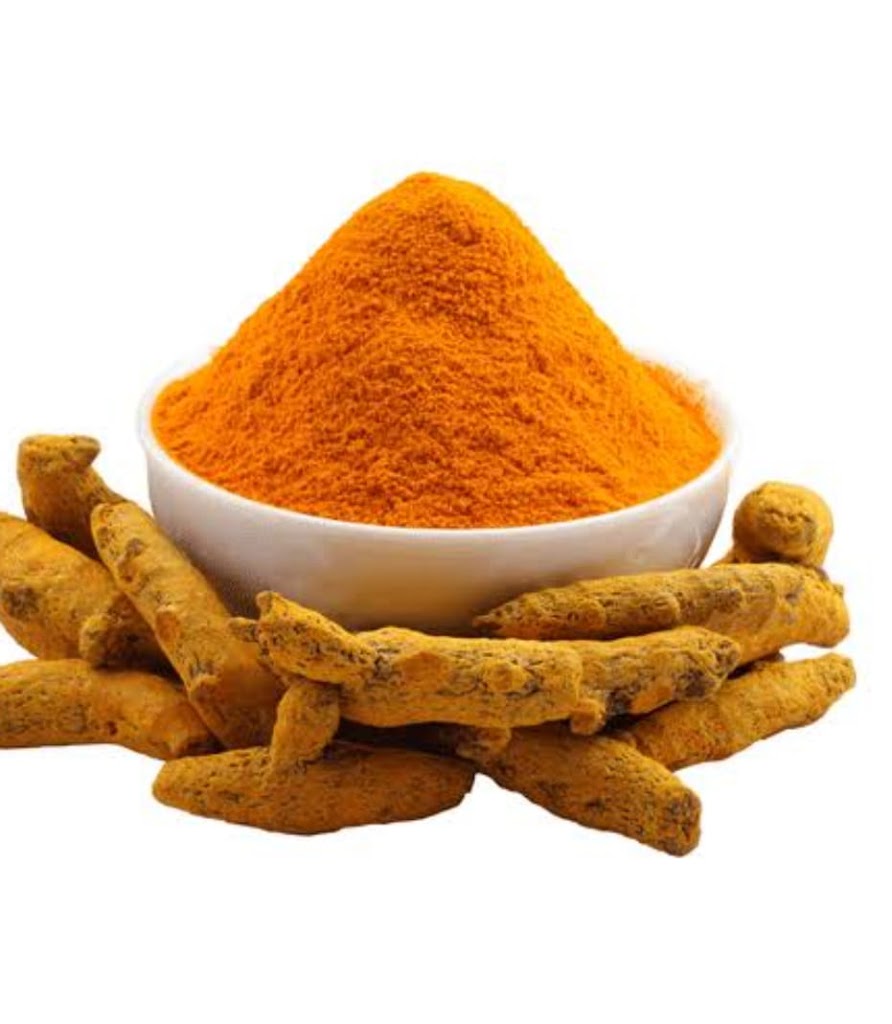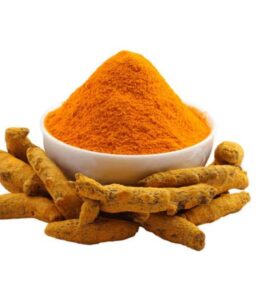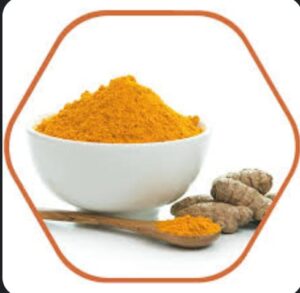Turmeric Benefits and Uses: A Comprehensive Guide to the Golden Spice
Turmeric, scientifically known as Curcuma longa, is a vibrant golden-yellow spice that has been used for centuries in traditional medicine and culinary practices. Originating from Southeast Asia, this ancient herb has gained worldwide recognition for its remarkable health benefits and versatile applications. In this comprehensive guide, we will explore the various advantages and uses of turmeric, shedding light on its medicinal properties, culinary significance, and potential drawbacks.
Historical Significance:
Turmeric’s historical significance can be traced back thousands of years to ancient Indian and Chinese civilizations. In Ayurvedic and traditional Chinese medicine, turmeric was highly regarded for its healing properties and used to treat various ailments, including digestive issues, skin conditions, and joint pain. Its use in religious rituals and ceremonies further solidified its cultural importance.
Active Compounds and Medicinal Properties:
The key active compound responsible for turmeric’s therapeutic effects is curcumin. Curcumin is a potent antioxidant and anti-inflammatory agent, making turmeric a valuable natural remedy for a wide range of health conditions. Its antioxidant properties help neutralize harmful free radicals in the body, while its anti-inflammatory nature can reduce chronic inflammation, which is linked to numerous chronic diseases.
Health Benefits of Turmeric:
Anti-Inflammatory Effects: Turmeric’s ability to combat inflammation has garnered attention in the medical community. Studies have shown that curcumin can help alleviate symptoms associated with inflammatory conditions such as arthritis, inflammatory bowel disease (IBD), and other inflammatory disorders.
Pain Relief: Due to its anti-inflammatory properties, turmeric may act as a natural analgesic, providing relief from various types of pain, including joint pain, headaches, and menstrual discomfort.
Antioxidant Power: Turmeric’s potent antioxidants can protect cells from oxidative stress, potentially reducing the risk of chronic diseases like cancer and heart disease.
Immune Support: The immune-boosting properties of turmeric can enhance the body’s defense mechanisms, helping to fend off infections and illnesses.
Digestive Health: Turmeric aids digestion by promoting the production of bile and enzymes necessary for breaking down fats and carbohydrates.
Brain Health: Emerging research suggests that curcumin may have neuroprotective effects, potentially delaying or preventing cognitive decline and neurodegenerative diseases like Alzheimer’s.
Skin Benefits: Turmeric’s anti-inflammatory and antimicrobial properties can help alleviate skin conditions such as acne, eczema, and psoriasis.
Diabetes Management: Studies have shown that curcumin may help improve insulin sensitivity and reduce blood sugar levels, making it beneficial for individuals with type 2 diabetes.
Uses of Turmeric:
Culinary Uses: Turmeric is a staple in many cuisines, particularly in Indian, Middle Eastern, and Southeast Asian cooking. It adds a distinct flavor and rich color to dishes, from curries and rice to soups and stews.
Turmeric Supplements: Turmeric supplements containing concentrated curcumin are available for those seeking a more potent dosage to address specific health concerns.
Turmeric Tea or Golden Milk: Popularly known as “golden milk,” turmeric tea is a soothing and nourishing beverage made by combining turmeric with milk (dairy or plant-based) and various spices like cinnamon and ginger.
Turmeric Face Masks: Its skin-nourishing properties make turmeric a popular ingredient in homemade face masks and skincare products.
Natural Food Coloring: Turmeric’s vibrant yellow hue makes it an ideal natural food coloring agent for soups, sauces, and baked goods.
Potential Side Effects and Precautions:
While turmeric is generally considered safe when used in culinary amounts, high doses or supplements may lead to mild side effects such as digestive discomfort. Additionally, those with gallbladder issues, bleeding disorders, or taking blood-thinning medications should exercise caution when consuming turmeric supplements.
Turmeric’s rich history, potent health benefits, and versatile uses have earned it the title of “golden spice.” From its powerful anti-inflammatory properties to its culinary applications, turmeric continues to captivate people worldwide. Before adding turmeric supplements to your daily routine, it’s crucial to seek advice from a healthcare expert, particularly if you have existing health issues. As research on this remarkable spice continues to unfold, turmeric’s role in promoting well-being and enhancing flavors in the culinary world remains timeless.
**************************************************************************
large;”>ہلدی کے فوائد اور استعمال: گولڈن اسپائس کے لیے ایک جامع گائیڈ
تعارف:
ہلدی، جسے سائنسی طور پر کرکوما لونگا کے نام سے جانا جاتا ہے، ایک متحرک سنہری پیلا مسالا ہے جو صدیوں سے روایتی ادویات اور کھانا پکانے کے طریقوں میں استعمال ہوتا رہا ہے۔ جنوب مشرقی ایشیا سے شروع ہونے والی، اس قدیم جڑی بوٹی نے اپنے قابل ذکر صحت کے فوائد اور ورسٹائل ایپلی کیشنز کے لیے دنیا بھر میں پہچان حاصل کی ہے۔ اس جامع گائیڈ میں، ہم ہلدی کے مختلف فوائد اور استعمال کا جائزہ لیں گے، اس کی دواؤں کی خصوصیات، کھانا بنانے کی اہمیت اور ممکنہ خرابیوں پر روشنی ڈالیں گے۔
تاریخی اہمیت:
ہلدی کی تاریخی اہمیت کا پتہ ہزاروں سال قدیم ہندوستانی اور چینی تہذیبوں سے لگایا جا سکتا ہے۔ آیورویدک اور روایتی چینی طب میں، ہلدی کو اس کی شفا بخش خصوصیات کے لیے بہت زیادہ سمجھا جاتا تھا اور اسے مختلف بیماریوں کے علاج کے لیے استعمال کیا جاتا تھا، جن میں ہاضمے کے مسائل، جلد کے حالات اور جوڑوں کے درد شامل ہیں۔ مذہبی رسومات اور تقاریب میں اس کے استعمال نے اس کی ثقافتی اہمیت کو مزید مستحکم کیا۔
فعال مرکبات اور دواؤں کی خصوصیات:
ہلدی کے علاج کے اثرات کے لیے ذمہ دار کلیدی فعال مرکب کرکومین ہے۔ کرکیومین ایک طاقتور اینٹی آکسیڈینٹ اور سوزش کو دور کرنے والا ایجنٹ ہے، جو ہلدی کو صحت کی وسیع اقسام کے لیے ایک قیمتی قدرتی علاج بناتا ہے۔ اس کی اینٹی آکسیڈنٹ خصوصیات جسم میں نقصان دہ آزاد ریڈیکلز کو بے اثر کرنے میں مدد کرتی ہیں، جبکہ اس کی سوزش کی نوعیت دائمی سوزش کو کم کر سکتی ہے، جو کہ متعدد دائمی بیماریوں سے منسلک ہے۔
ہلدی کے صحت کے فوائد:
سوزش کے خلاف اثرات: ہلدی کی سوزش سے لڑنے کی صلاحیت نے طبی برادری میں توجہ حاصل کی ہے۔ مطالعات سے پتہ چلتا ہے کہ کرکومین سوزش کی حالتوں جیسے گٹھیا، سوزش والی آنتوں کی بیماری (IBD)، اور دیگر سوزش کی خرابیوں سے منسلک علامات کو کم کرنے میں مدد کرسکتا ہے۔
درد سے نجات: اس کی سوزش مخالف خصوصیات کی وجہ سے، ہلدی ایک قدرتی ینالجیسک کے طور پر کام کر سکتی ہے، جو مختلف قسم کے دردوں سے راحت فراہم کرتی ہے، بشمول جوڑوں کا درد، سر درد، اور ماہواری کی تکلیف۔
اینٹی آکسیڈینٹ پاور: ہلدی کے طاقتور اینٹی آکسیڈنٹس خلیوں کو آکسیڈیٹیو تناؤ سے بچا سکتے ہیں، ممکنہ طور پر کینسر اور دل کی بیماری جیسی دائمی بیماریوں کے خطرے کو کم کرتے ہیں۔
مدافعتی معاونت: ہلدی کی قوت مدافعت بڑھانے والی خصوصیات جسم کے دفاعی طریقہ کار کو بڑھا سکتی ہیں، جس سے انفیکشن اور بیماریوں کو روکنے میں مدد ملتی ہے۔
ہاضمہ صحت: ہلدی چکنائی اور کاربوہائیڈریٹ کو توڑنے کے لیے ضروری پت اور انزائمز کی پیداوار کو فروغ دے کر ہاضمے میں مدد کرتی ہے۔
دماغی صحت: ابھرتی ہوئی تحقیق سے پتہ چلتا ہے کہ کرکیومین کے نیورو پروٹیکٹو اثرات ہوسکتے ہیں، ممکنہ طور پر علمی کمی اور الزائمر جیسی نیوروڈیجنریٹیو بیماریوں میں تاخیر یا روک تھام کر سکتے ہیں۔
جلد کے فوائد: ہلدی کی سوزش اور اینٹی مائکروبیل خصوصیات جلد کی حالتوں جیسے ایکنی، ایکزیما اور چنبل کو دور کرنے میں مدد کر سکتی ہیں۔
ذیابیطس کا انتظام: مطالعات سے پتہ چلتا ہے کہ کرکومین انسولین کی حساسیت کو بہتر بنانے اور خون میں شکر کی سطح کو کم کرنے میں مدد کر سکتا ہے، جو اسے ٹائپ 2 ذیابیطس والے افراد کے لیے فائدہ مند بناتا ہے۔
ہلدی کے استعمال:
کھانا پکانے کے استعمال: ہلدی بہت سے کھانوں میں خاص طور پر ہندوستانی، مشرق وسطیٰ اور جنوب مشرقی ایشیائی کھانا پکانے میں ایک اہم غذا ہے۔ یہ سالن اور چاول سے لے کر سوپ اور سٹو تک پکوانوں میں ایک الگ ذائقہ اور بھرپور رنگ شامل کرتا ہے۔
ہلدی کے سپلیمنٹس: مرتکز کرکومین پر مشتمل ہلدی کے سپلیمنٹس ان لوگوں کے لیے دستیاب ہیں جو صحت کے مخصوص خدشات کو دور کرنے کے لیے زیادہ طاقتور خوراک کے خواہاں ہیں۔
ہلدی کی چائے یا سنہری دودھ: “سنہری دودھ” کے نام سے مشہور ہلدی چائے ایک آرام دہ اور پرورش بخش مشروب ہے جو ہلدی کو دودھ (ڈیری یا پودوں پر مبنی) اور دار چینی اور ادرک جیسے مختلف مصالحوں کے ساتھ ملا کر بنایا جاتا ہے۔
ہلدی کے چہرے کے ماسک: اس کی جلد کی پرورش کرنے والی خصوصیات ہلدی کو گھریلو چہرے کے ماسک اور سکن کیئر مصنوعات میں ایک مقبول جزو بناتی ہیں۔
قدرتی فوڈ کلرنگ: ہلدی کی متحرک پیلی رنگت اسے سوپ، چٹنی اور بیکڈ اشیا کے لیے قدرتی فوڈ کلرنگ ایجنٹ بناتی ہے۔
ممکنہ ضمنی اثرات اور احتیاطی تدابیر:
اگرچہ ہلدی کو عام طور پر پاک مقدار میں استعمال کرنے پر محفوظ سمجھا جاتا ہے، لیکن زیادہ خوراک یا سپلیمنٹس ہلکے ضمنی اثرات جیسے ہاضمہ کی تکلیف کا باعث بن سکتے ہیں۔ مزید برآں، جن لوگوں کو پتتاشی کے مسائل، خون بہنے کی خرابی، یا خون پتلا کرنے والی دوائیں لیتے ہیں انہیں ہلدی کے سپلیمنٹس کا استعمال کرتے وقت احتیاط کرنی چاہیے۔
ہلدی کی بھرپور تاریخ، صحت کے قوی فوائد، اور ورسٹائل استعمال نے اسے “سنہری مسالا” کا خطاب دیا ہے۔ اس کی طاقتور سوزش کی خصوصیات سے لے کر اس کے کھانے کے استعمال تک، ہلدی دنیا بھر میں لوگوں کو مسحور کرتی ہے۔ ہلدی کے سپلیمنٹس کو اپنے روزمرہ کے معمولات میں شامل کرنے سے پہلے، صحت کی دیکھ بھال کے ماہر سے مشورہ لینا بہت ضروری ہے، خاص طور پر اگر آپ کو موجودہ صحت کے مسائل ہیں۔ جیسا کہ اس قابل ذکر مسالے پر تحقیق جاری ہے، صحت مندی کو فروغ دینے اور کھانے کی دنیا میں ذائقوں کو بڑھانے میں ہلدی کا کردار لازوال ہے۔



2 thoughts on “Turmeric Benefits and Uses: A Comprehensive Guide to the Golden Spice….Haldi Ke Faide”